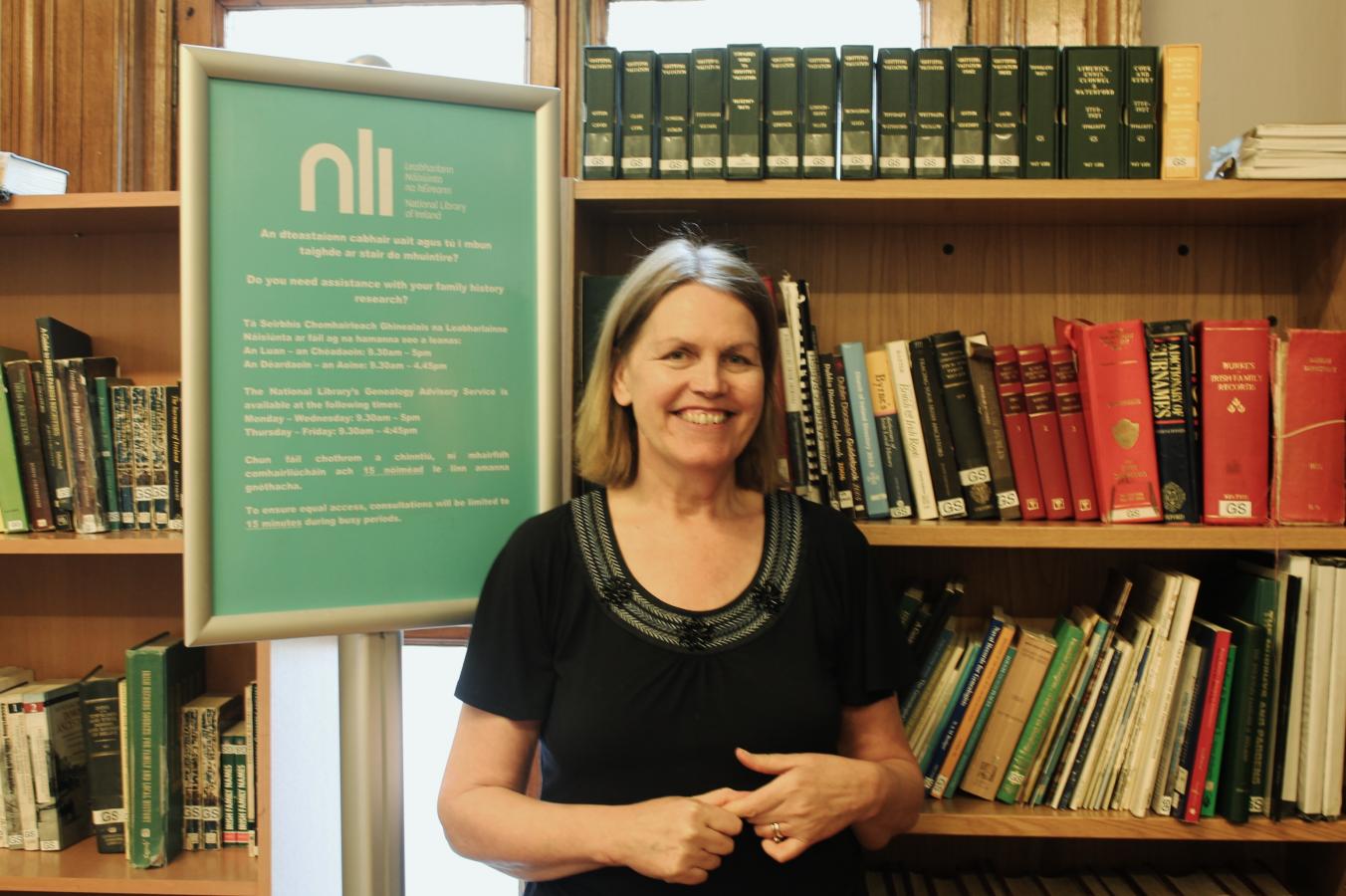Visitors to the Library’s Genealogy Advisory Service have different motivations for tracing their families. For many, it’s an absorbing hobby, for overseas visitors it is an attempt to locate their Irish origins or, as one person memorably described it to me, it’s an itch they just must scratch!
But for some visitors to the Library there is another motivation and that is to learn about the illnesses that appear in their family’s history. For some, the answers found are not what was expected, like an early death from TB (phthisis), childhood diphtheria or bronchitis. It always stops people in their tracks to discover that their ancestor died of something which is now preventable. Others, like me, have a grandmother, felled by the Spanish flu so young that she did not go on to develop the cancer that later devastated her sister, niece and granddaughter.
Occasionally we get visitors to the Library’s GAS who, following the diagnosis of a genetic illness, come to research if and how it runs in the family. They do this by examining the causes of death recorded on ancestors’ death certificates. A pattern may emerge of the same illness – certain types of cancer, diabetes, heart conditions or stroke – occurring through the generations. A family health history gives a better warning than a genetic test. Knowing one’s family medical history allows a person to take steps to reduce his or her risk.
For some, the knowledge that suicide was the cause of death, raises the issue of mental health through the generations. This brings into sharp focus the current campaigns in Ireland, whose aim is to develop awareness and provide support. Our university campuses, sports clubs, employers – many types of organisations – are working to highlight the incidence of mental health issues in our midst, urging us to recognise them, to know that there is treatment.
What causes changes to our genetics, the study of epigenetics, is a fascinating area. The role life-experience and trauma can play is also of great interest, and family historians can play their role in documenting this. The centenary celebrations have encouraged many visitors to the Library to document the lives of their soldier ancestors, hitherto ignored. We learn that a great Uncle’s strange post-war behaviour would now be recognised as post-traumatic stress disorder (PTSD). Lives blighted by early trauma, caused by war, childhood neglect, the early loss of a parent or loss of livelihood, are just some of the vicissitudes that can cast long shadows over many families. We are so very privileged in the Genealogy Advisory Service to bear witness to these events.
If you have been affected by any of the issues raised in this article, the links below will connect you to organisations that can help:
https://www.mindyourself.ie/asp/
https://www.yourmentalhealth.ie/
Expert reseracher
